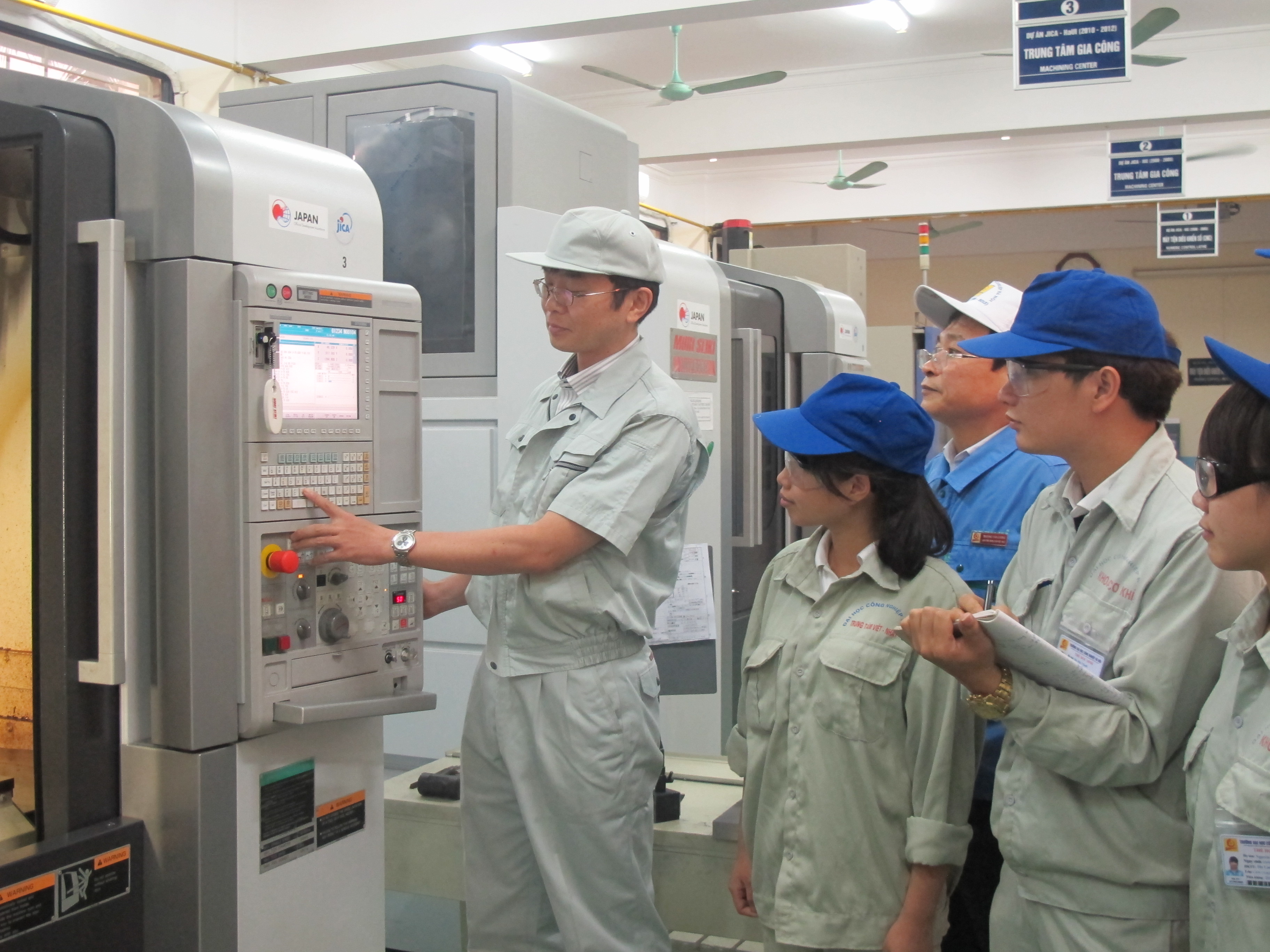Industry Engagement in TVET: Experiences from East Asia - How East Asian Countries Learned and Localized Foreign Models of Technical Education? -
Day:2023.12.28
event |

In April 2022, the African Union Development Agency (AUDA-NEPAD) and the JICA Ogata Sadako Research Institute for Peace and Development (JICA Ogata Research Institute) jointly hosted two book launch webinars in April 2022 as a part of cooperation to strengthen mutual intellectual partnerships.
1. Policy Learning for Industrial Development and the Role of Development Cooperation (Considering Tomorrow’s Industrialization and Development in Africa Based on Translative Adaptation: Book Launch Hosted by AUDA-NEPAD and JICA Ogata Research Institute
)
2. Promoting Quality and Productivity Improvement / Kaizen in Africa (Transforming African Industries With Kaizen: Book Launch Hosted by AUDA-NEPAD and JICA Ogata Research Institute
)
As a continuation of our fruitful collaboration in information sharing and knowledge dissemination on best practices, the JICA Ogata Research Institute and AUDA-NEPAD Policy Bridge Tank Programme, will jointly host a webinar, with a focus on the development of industrial human resources (HRD).
The development of human resources that align with labor market demands is a crucial priority for many countries, particularly in Africa where addressing youth employment is high on the agenda. Japan has a wealth of experience in supporting industrial HRD in developing countries, which includes the capacity development of TVET institutions for industry linkages.
In this context and based on the research at JICA Ogata Research Institute, we would like to share two East Asian examples: (i) promoting industry engagement in Vietnam; and (ii) learning and localizing industrial technologies in Thailand. These cases are included in the recently published book “Introducing Foreign Models for Development Japanese Experience and Cooperation in the Age of New Technology
” from Springer.
Recognizing the critical need to generate productive employment opportunities for Africa’s burgeoning youth population, we cordially invite you to join our webinar discussion. We believe that the experiences from East Asia will provide valuable insights and contribute to the co-creation of practical knowledge for industrial development in Africa. Your participation will undoubtedly enrich the conversation and we look forward to your valuable contributions.
1. Opening remarks (5 minutes)
Pamla Gopaul, Lead Coordinator, Economic Analysis and Foresight Unit, AUDA-NEPAD
2. Presentation "Industry Engagement in TVET (case study on Vietnam)" (15 minutes)
Junichi Mori, Former Chief Technical Advisor for the Skills for Prosperity Programme in Malaysia, International Labour Organization (ILO)
Presentation "Learning Industrial Technologies, Monodzukuri Education with Localization (case study on Thailand)" (15 minutes)
Izumi Ohno, Professor, National Graduate Institute for Policy Studies (GRIPS) and Senior Research Advisor, JICA Ogata Research Institute, Japan
3. Introduction from the Moderator (10 minutes)
"Bridging East Asian Experience with African Development" by Toru HOMMA, Senior Advisor to the CEO, AUDA-NEPAD (Senior Advisor on Private Sector Development, JICA)
Comments by discussant (10 minutes)
Arhin Acheampong
Deputy Director、Afro-Sino Centre of International Relations
Comments by discussant (10 minutes)
Unami Dube
Senior Programme Officer -Institutional Development, Human Capital & Institutions Dev. Prog., AUDA-NEPAD
4. Discussion among participants, Q&A (22 minutes)
5. Closing Remarks (3 minutes)
Minoru Yamada, Deputy Director General of Loan, Grant and Property Administration Department of JICA (previously served as Executive Senior Research Fellow at the JICA Ogata Research Institute)
Dr. Mori examines the development of the industry engagement system in Vietnam through a case study of the Hanoi University of Industry (HaUI). There is a world-wide consensus on the importance of industry engagement in TVET, and ‘best practice’ models are globally promoted. But there remains a question about how to build and institutionalize a workable system suitable to each country. This presentation analyzes how HaUI learned and adopted foreign models with localization. After studying various foreign models related to industry engagement, HaUI selected the Japanese training process management system, considering its capacities and the extent of support from industry. However, as translative adaptation is a dynamic process, it is predicted that HaUI will keep transforming the current model. He finds three factors that enabled HaUI to undertake translative adaptation of the Japanese model: confidence building, capacity development, and strong ownership of those involved. It also discusses challenges of scaling up the HaUI experience to the national level, in part due to the insufficient involvement of government at the learning and adaptation stage.
Prof. Ohno analyzes Thailand’s experience with technology promotion and technical education by learning and localizing Japanese-style manufacturing. Special attention will be paid to the role played by two private organizations: Technology Promotion Association (Thailand-Japan) (TPA) and the Thai Nichi Institute of Technology (TNI). TPA is a NPO established in 1973 by the initiative of Thai students and ex-trainees who studied in Japan, to promote the introduction and dissemination of new industrial technology from Japan for Thai people and enterprises. TNI is a technical education institute established in 2007 by TPA, with an emphasis on field-oriented, practical education for manufacturing and other industries. TPA and TNI successfully developed localized mechanisms for promoting industrial technologies, technical education, and training in industry circles and broader segments of the Thai society. The presentation also considers key factors for their success including the role of Japanese industrial cooperation. It also reviews their recent efforts to cope with the new challenges of industrialization in the age of digitalization, as well as the changing nature of the partnership between Thailand and Japan.
JICA Ogata Sadako Research Institute for Peace and Development (Ms. Yoonjung Kim)
E-mail:dritrp@jica.go.jp
Please register by clicking here.
*Registration will be closed at noon January 15 (Japan time).
scroll